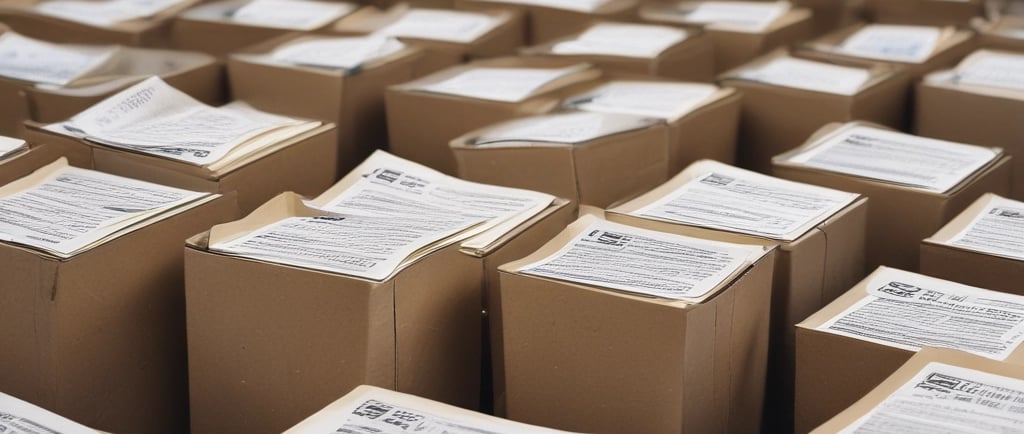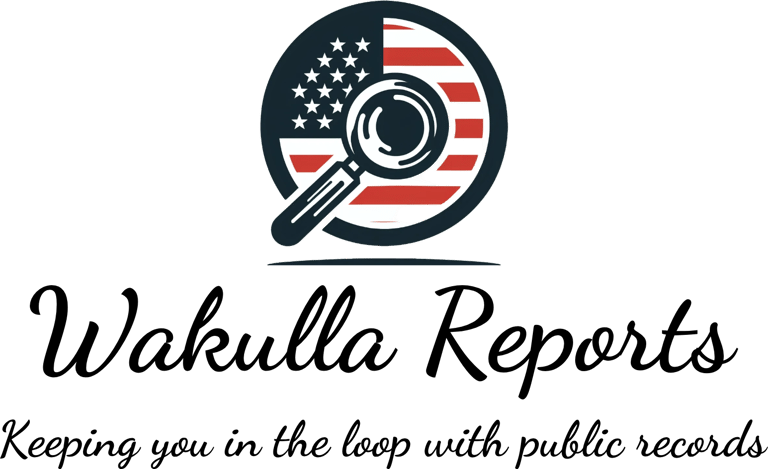Introduction to Florida Public Records Resources
Discover how to access public records in Florida and explore valuable resources available for free. Learn tips on maintaining your anonymity while navigating public records for your needs.
TOOLS YOU CAN USE
Josephine Baker
2/12/20254 min read


Basics of Public Records in Florida
Public records in Florida encompass a wide range of documents created or maintained by government agencies in the course of conducting public business. These records include, but are not limited to, official documents such as meeting minutes, court records, emails, and various reports. The Florida Public Records Law, established in Chapter 119 of the Florida Statutes, mandates that these records are generally accessible to the public, thereby promoting governmental transparency and accountability.
The basic premise of the Florida Public Records Law is that all records are open for inspection unless specifically exempted. Exceptions may include certain legal documents related to ongoing investigations, personal privacy matters, or other sensitive information. Florida’s Government in the Sunshine Law further supports this principle by ensuring that governmental meetings are conducted openly, allowing members of the public to engage with their representatives and understand the decision-making processes that affect their communities.
Accessing public records typically involves submitting a formal request to the relevant agency. This request can often be made online, through email, or via postal mail. While agencies are required to respond in a timely manner, it is important to consider that certain records may take longer to retrieve due to their complexity or volume. The process aims to balance the public’s right to access information with the need to maintain confidentiality where required.
Public records play a crucial role in fostering an informed citizenry and holding government entities accountable for their actions. They serve as a tool for transparency by enabling citizens to monitor government activities, assess elected officials' performance, and participate more actively in governing processes. In this way, public records are integral to enhancing civic engagement and ensuring responsible governance in Florida.
Learn About Your Right to Access Public Records
The first step is to identify the specific records you wish to obtain. When seeking records, it's essential to formulate a precise request to ensure successful retrieval. For instance, instead of asking, "I want to know how many times the board approved road closures in the past year," a more effective approach would be, "I am requesting all approved monthly county commissioner meeting minutes for the past year." This shifts the focus to specific records that are likely to exist and can provide the information you need. Also, being that you know the minutes exist because the prior meeting's minutes are approved at the subsequent meeting - this is a home run. Now you will be responsible for digging through the records to tally the vote.
The Florida Government in the Sunshine Manual is an essential document for anyone looking to understand the state's open government laws. Although it is quite extensive, utilizing the search function (Control + F) on the PDF can help you quickly locate key information. This manual clarifies what public records and meetings are accessible under Florida Statute 119, while also detailing any specific exemptions or timelines that may apply. In essence, it serves as a comprehensive guide to transparency in government, ensuring that citizens are aware of their rights to access public information, unless explicitly restricted by law (exempt). Familiarizing yourself with this resource will empower you to navigate Florida’s open government framework effectively.
Realize What is Already Available to You FREE!
There are many resources available to you. We will cover what these will show you in our video. Much information often can be accessed at your fingertips.
Wakulla County Property Appraiser - search for land ownership information, tax information (linked to tax collector) - these are also mostly available in every county in Florida!
Wakulla County Supervisor of Elections Campaign Reports - search for previous candidates financial information and campaign records - available for most counties in Florida.
Wakulla County Building Permit Portal - Learn about when you need a permit and search for permits
Wakulla County Clerk of Court Judicial Proceeding Records - Any court proceeding documentation which may or may not include all. You will need to watch our video so that you can understand how to access documents that have not been made available. The clerk uses a third party vendor to house these records. This is available for many counties in Florida see.
Wakulla County Official Records - These are things like deeds, divorces, land transfers, mortgages, etc. Mostly available for all counties in Florida.
State of Florida Corporation Search - Learn about corporations, their governing principals, and even link corporations by officers
Florida Commission on Ethics Financial Disclosure Search - Search for elected officials financial disclosures (different from campaign finances in that it is their personal financial position)
Florida Campaign Contribution Search (above county level) - You can search any candidate registered to run for public office, above the county level, in the State of Florida.
So You Want to Remain Anonymous?
In today's society, many individuals seek to maintain their anonymity for various reasons that aren't necessarily malicious. For instance, government employees or their family members may wish to remain discreet due to concerns about workplace retaliation. To achieve anonymity, one can execute a narrowly defined records request, which minimizes risks of exposure by implicating fees for the request. Additionally, using an email address that conceals personal information can further enhance cover. Given the prevalence of technology, it's also wise to be mindful of how easily one's IP address can be tracked, adding another layer of consideration when navigating the complexities of public records requests while remaining incognito.
Using a VPN is a viable remedy to IP address identification. Anonymous email addresses can be created on virtually any platform including but not limited to: Yahoo, Google (Gmail), AOL mail, Outlook, Proton Mail, Apple Mail, etc. VPN's can be acquired for a few bucks a month. Depending on your internet service provider, your VPN may tie to a different city than you are located in.
What's Next?
In the next steps we will discuss:
Good things to search for in the Florida Government in the Sunshine Manual
How to execute a public records by form submission and directly to an email address
Including a basic request template to guide you
How to avoid fees and how to address them if you do get fees (including anonymity)
Helpful tips and tricks to narrow down your request so that you don't get fees
Later, we will discuss requesting State of Florida records and how to track down your go to person and how to escalate the request if it is not filled


Additional Social Links
YouTube is your go-to for short clips, video explainers, and visual breakdowns of how Florida and Wakulla governments really work.
Facebook brings you bite-sized written content, sticky-note facts, and rolling updates you can share and discuss.
NEW! TikTok You can now follow Wakulla Reports on TikTok for quick updates and BOCC video clips.
Prefer to browse at your own pace?
Bookmark our website and visit anytime for fresh posts, resources, and real-life examples from right here in Wakulla County.
© 2024. All rights reserved.
